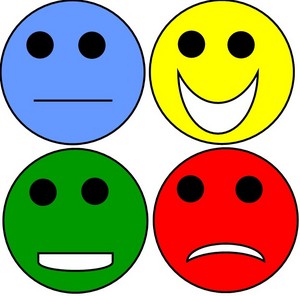Do you sometimes feel like you are on a rollercoaster ride from week to week? If you are really in tune with your body you will notice subtle (and some not-so-subtle) changes that occur with your body and your emotions in a cyclic manner. You probably realize that these changes have a lot to do with hormones and your menstrual cycle. From week to week hormones in your body are climbing or diminishing. It’s enough to make even the most in-control woman feel a little “off” at times.
You know the deal. Your menstrual cycle is approximately twenty-eight days long. You ovulate somewhere in the middle, maybe day fourteen if you’re “average”. Your period (which begins on Day One of your menstrual) is between 3-5 days long. Again, that’s the average. Of course, we all know that we fall somewhere outside of the average of some or all of those things. What is constant, however, is what goes on with hormones and your menstrual cycle.
When it comes to hormones and your menstrual cycle, you need to have an understanding of how the two main hormones at work affect the female body. Estrogen is a feel good hormone. It gives you energy and with the help of testosterone, an increase in sex drive. When your estrogen levels are up, you probably feel more feminine and maybe sexier than normal.
Progesterone has a tranquilizing effect on the body. It slows your systems down a bit. When progesterone levels are high, you are more likely to feel depressed (depending on your sensitivity to the hormones during your menstrual cycle) and will probably have less energy.
On day one of your menstrual cycle the hormones estrogen and progesterone are as low as they will be at any other point in your cycle. Prostaglandins are at their highest level at this time. When a woman is pregnant, prostaglandins are released at the time that labor begins to create uterine contractions. You probably do not feel stellar on day one of your menstrual cycle.
Due to the prostaglandins, your stomach is likely emptying itself and you may have diarrhea. You probably have cramps that began like a warning siren to let you know that good old Aunt Flo will be arriving within hours. You may feel achy if you problems with your joints or you may be having issues with your skin or asthma flare ups may worsen at this time. Hang in there because after the first few days of your period, you will start to feel better.
After your period begins, your estrogen levels begin to climb. Your progesterone levels stay low for a bit. If you are prone to anxiety, you may feel the effects of estrogen in that way now. Overall, though, you probably feel great. As your period ends and you move closer to ovulation, you likely feel more attractive and thanks to a rise in testosterone, you feel more aggressive and have an increase in your sex drive. Work outs go well, your emotions seem more stable and your body is primed for baby-making. You feel warm and fuzzy toward your partner. If you are trying to diet, quit smoking or make some other change now is the time to begin. You can handle it well.
Then you ovulate. Bye-bye sweet estrogen. (Who, by the way, is a devil in disguise because too much exposure to estrogen over your life time can put you at risk for breast and reproductive organ cancers.) Estrogen falls off sharply after your body releases that egg. Progesterone starts to climb and offers a calming affect. It is likely that if you suffer from anxiety, you feel better now. If you are prone to depression, however, watch out! Between days twenty and twenty-four of your cycle, progesterone will hit an all time high. Your appetite will increase and with your body systems slowing down, you will likely experience constipation and water retention. Yes, ladies, this is PMS.
A small rise in estrogen may be just enough to make you feel weepier but not enough to feel the good effects of estrogen. Hang in there, get plenty of exercise and feed that monster appetite with small but more frequent meals to keep your blood sugar even. Calcium and magnesium supplements can help during this time along with Evening Primrose Oil and St. John’s Wort.
A day or two before your period beings, both hormones fall and your body prepares to begin the menstrual cycle all over again.
